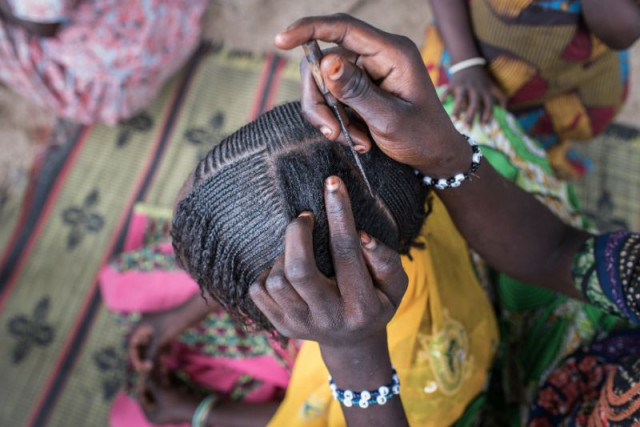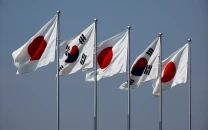Amnesty highlights sex-for-food claims in Boko Haram-hit Nigeria
Amnesty International says it has gathered multiple testimonies about alleged abuse by Nigerian security forces

PHOTO AFP
"This... is just a wild goose chase report, in essence... the report seemed like the one in 2015, and the one in 2016, and the one after that year, the same things being recycled again and again," presidential spokesperson Garba Shehu said.
Amnesty said it had gathered multiple testimonies about alleged abuse by the security forces, including claimed that soldiers coerced vulnerable survivors into having sex in exchange for food.
But despite long-standing complaints about sexual violence and repeated promises by the Nigerian authorities that they would address concerns, "no tangible action" had been taken.
20 killed in Boko Haram attack on Nigerian army base, villages
In November 2016, police vowed to look into allegations of sexual abuse and exploitation in the camps but several months later, the military rejected the allegations.
"It is not always clear if these investigations were carried out and no reports have been made public," the London-based rights group said in a statement.
Amnesty's Nigeria director, Osai Ojigho, said it was time for President Muhammadu Buhari "to demonstrate his frequently-expressed commitment to protect the human rights of displaced people in northeast Nigeria.
"The only way to end these horrific violations is by ending the climate of impunity in the region and ensuring that no-one can get away with rape or murder."
Women and girls, many of whom have been separated from their families, are vulnerable to sexual abuse and say rape is widespread both in and outside the camps, according to aid agencies.
Some non-profit organisations run family planning clinics, providing contraception, and say there are high numbers of sexually transmitted infections, abortions and unwanted pregnancies.
"Scores" of women told Amnesty that soldiers and civilian militia members coerced them into becoming "girlfriends", which meant them being available for sex.
In return they got food.
Nigeria confirms 110 girls missing after Boko Haram school attack
Sexual exploitation was at an "alarming level, as women remain desperate to access sufficient food and livelihood opportunities", the group added.
"Sex in these highly coercive circumstances is always rape, even when physical force is not used, and Nigerian soldiers and (militia) members have been getting away with it," said Ojigho.
According to the latest available figures to April 30, nearly 1.8 million people have been displaced within Nigeria by the Boko Haram insurgency, which has killed at least 20,000 since 2009.
Including figures from neighbouring Cameroon, Chad and Niger, the number of people forced to flee their homes by the violence reaches nearly 2.25 million, according to the UN refugee agency UNHCR.
Military gains have wrested back control of areas previously held by the Islamist militants, laying bare the extent of the damage to farming and fishing on which most locals depend.
By the end of March, 3.5 million people were in need of humanitarian assistance, the UN said. Malnutrition cases with medical complications are expected to rise in the upcoming rainy season.
Amnesty said thousands of people had died from starvation due to a lack of food at the camps over the past four years, without specifying an exact number.


















COMMENTS
Comments are moderated and generally will be posted if they are on-topic and not abusive.
For more information, please see our Comments FAQ